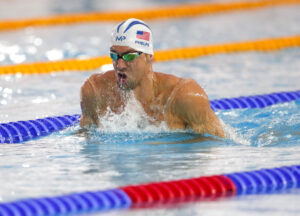High Performance Mindset Training Camp
What do Tom Brady, Michael Jordan, Simone Biles, and Mia Hamm all have in common? Legends of their sport? Definitely. But there’s one more thing. They all have acknowledged using a sports psychologist to develop a stronger mindset, giving them a competitive advantage over their opponents.
These athletes keenly understand that often the difference between winning and losing comes down to those high-pressure moments during games when everything is on the line. In his GameChange digital Training Camp, High Performance Mindset, University of Southern California neuroscientist Dr. Glenn Fox addresses this topic by asking, “What do you do when it’s time to stick your neck out there and you need to regulate your emotion in real time, manage your stress, and thrive under pressure?”
The study of performance mindset has become so prevalent that it is even taught at universities to help students become more competitive when entering the workforce. Dr. Fox knows this all too well. He studies performance mindset and teaches classes on the subject at USC. Dr. Fox has generously shared the program he developed in his GameChange Training Camp. It is divided into three parts: Heart, Command, and Lift.
Heart: Heart is your motivation. What is it that motivates you? What are the things that you are grateful for? What is your purpose? Is there something bigger than you that drives you to succeed? Are you optimistic? Do you believe that if you do the work, good things will happen?
Motivation provides you with the grit to keep going when times get hard. This can often happen when you are getting started and developing a command of your craft.
Command: Command is your skillset. This is where you put in the hours to do the work to become an expert of your desired field. As we are working to get better, there are often setbacks. It is during those times of setback that many people quit because they are incapable of dealing with failure. Dr. Fox advises on how to deal with those moments. “Failure really has nothing to do with what the outside world has to say about what we do, but more about how we learn from what we try to accomplish.”
The questions we need to ask ourselves in these moments are: Do you have the motivation to keep going? Do you learn from your mistakes? This is how you develop command.
Lift: This is when you go for it! After hours and hours of practice, training, or learning, are you ready to step up and get into the game? It takes courage to get into the arena. Many people stop before they get to this step because they never feel they are quite ready, but there comes a time when you have to dive into the deep end and start swimming! This is Lift.






